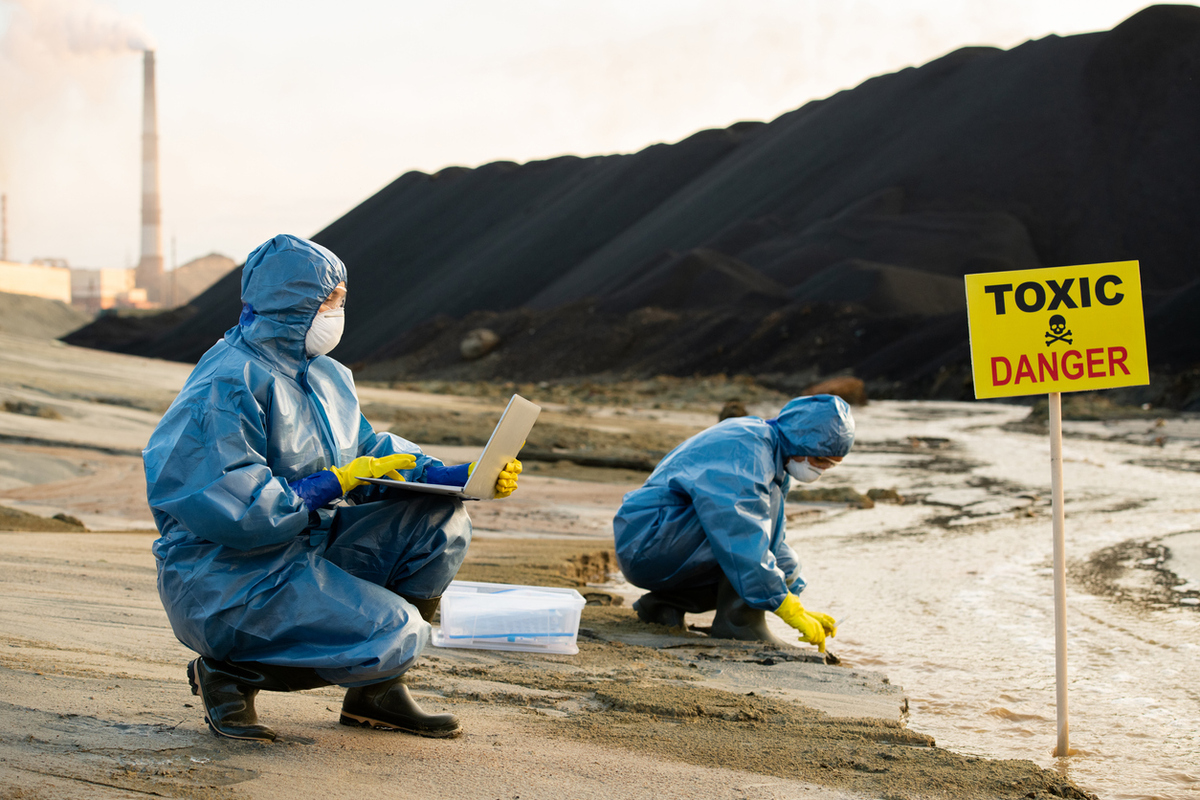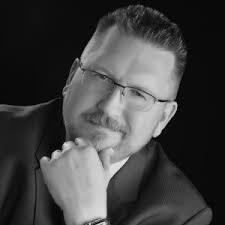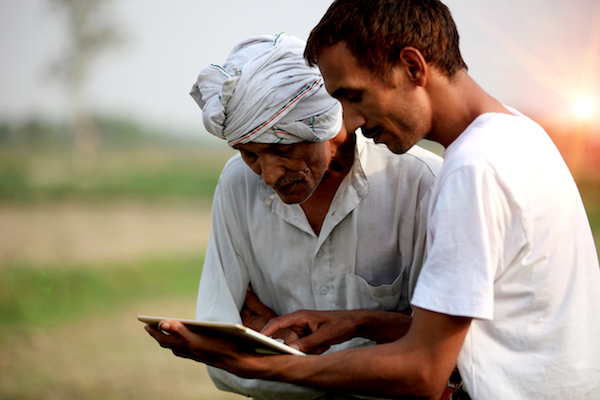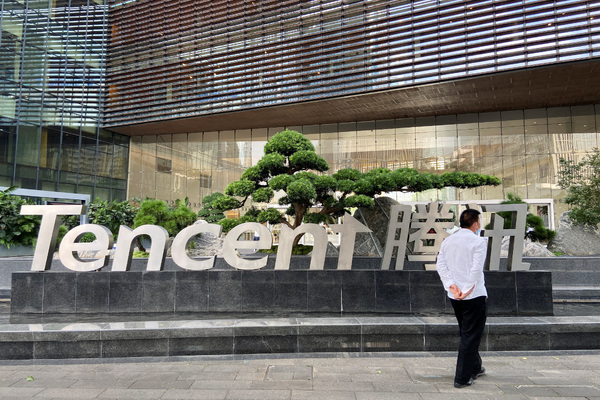American View: Why You and Your People Are Accomplishing Less in 2022

I’ve been experiencing a serious performance impediment this year. Odds are, many of your people are afflicted by the same problem. Heck, it’s possible that you’re going to contract it too … assuming you haven’t already. There’s little anyone can do about it, either; your only option is to suppress the symptoms and re-prioritise your activities until your situation improves.
For context, I sent the manuscript for my first eBook project to my voice talent last winter. Jack – my “talent” guy – is an old Army buddy. He’s narrated all my audiobooks to date save for one: Why Are You Here?, my book on interviewing (and my first Kindle project). I’ve been holding off on turning that one into an audiobook for years because I wasn’t fully satisfied with it.
During a lockdown lull last year, I did another stem-to-stern re-write on WAYH? that finally got the message I wanted just right. Once the 4th edition posted on Amazon, I was felt it was high time to get it converted. I sent Jack the new manuscript draft, and he slotted it in his queue.
Jack’s narrated over 400 audio books and has a book of his own on Amazon, so he’s always in high demand. I figured it would take a while to get around to my project. That’s why I was caught off guard when he reached out in March to let me know he was ready to get started reading WAYH? I was excited to finally get the project off high centre.
I figured I could quality check a half dozen chapters a day on weekends and bank holidays and knock the project out in about a month. That was the plan, anyway. I got the first nine chapters QC’d in late May after Jack’s audio files posted on ACX … then I lost all momentum. I QC’d another four chapters in June but it took me a huge amount of effort. Then … nothing.
Jack’s been very professional about me holding him up; he’s been more polite than I deserve if I’m honest. Still, every time I’ve sat down to work on it since June, I’ve spent my time staring at a blank screen for minutes or hours before returning to a seemingly endless habit of doom-scrolling. I’ve accomplished nothing of note on the new audiobook since June 9th. Why?

Let’s pan out and look at the world outside my home office. Here are just a few “distractions” that have dominated my attention since the year started:
- 24th February: Russia invaded Ukraine initiating a string of massacres and war crimes that have yet to taper off; every other day brings news of another horror from the front.
- 6th May: the global monkeypox outbreak was hyped as a low-budget sequel to COVID-19 with a better marketing tag.
- 14th May: a white supremacist murdered 10 shoppers in a supermarket in Buffalo, NY, demonstrating how effective stochastic terrorism can be at motivating unhinged dirtbags
- 24th May: a violent 18-year-old massacred 22 teachers and students in a Uvalde, TX elementary school … while the city’s cops stood around doing nothing
- 28th May: thirty people – mostly children – were killed in a stampede at a charity event in Port Harcourt, Nigeria
- 24th June: the U.S. Supreme Court overturned fifty years of federal law that protected a woman’s right to abortion, triggering insane new state laws that are guaranteed to kill people
- 28th June: the BA.4 and BA.5 subvariants of the omicron strain of COVID-19 took over as the most virulent strains circulating … and they seem to ignore antibody responses
- 4th July: a nihilist psychopath slaughtered 7 people and wounded 25 at a parade in Highland Park, just “for the LULZs”

Every day that’s passed recently seems to have brought with it another batch of terrible news. Stories that inspired – demanded, really – outpourings of frustration, grief and rage. Feelings that insisted something must be done. In all these cases, however, there was nothing that an individual could do that would have any meaningful effect. The people and institutions who could take corrective action steadfastly refused to.
The old Texas folk saying that “it’s just one danged thing after another” can’t convey the unrelenting emotional impact that a pipeline of disturbing breaking news has on a person, especially when each horror story du jour seems to be inextricably linked with reminders of how our dysfunctional governments not only refuse to stop recurrences of preventable disasters, but seems to be actively encouraging more of the same.
The end effect feels like something like “compassion fatigue.” This is a phenomenon the Army warned us about in combat medic school: it’s the cumulative effect of stress that comes from directly aiding others who are themselves experiencing trauma. Officially, this is a recognized syndrome that afflicts people in direct care positions. To quote the Wikipedia article:
“Compassion fatigue is considered to be the result of working directly with victims of disasters, trauma, or illness, especially in the health care industry Individuals working in other helping professions are also at risk for experiencing compassion fatigue. These include child protection workers, veterinarians, clergy, teachers, social workers, palliative care workers, journalists, police officers, firefighters, animal welfare workers, public librarians, health unit coordinators, and student affairs professionals. Non-professionals, such as family members and other informal caregivers of people who have a chronic illness, may also experience compassion fatigue … [emphasis added]
That makes sense. Soldiering is challenging enough; confronting war wounds, suffering, and mortality on top of just surviving a war was bound to impact us. Attending to others’ suffering triggers a person’s natural sense of empathy. Depending on the cause of that suffering, it might also trigger a sympathetic anger response if the suffering came about from unjust causes.
Trouble is, I can’t claim to be experiencing “compassion fatigue” since I haven’t come into direct contact with anyone who personally experienced the horrors of the Buffalo massacre. No one in my house is being forced to carry an unwanted pregnancy to term. I haven’t lost a family member to COVID-19 (yet). I haven’t worked in the medical field for a long time. According to the above-quoted article, I shouldn’t be experiencing “compassion fatigue” or anything like it.
The article continues, however, stating: “People who experience compassion fatigue may exhibit a variety of symptoms including lowered concentration, numbness or feelings of helplessness, irritability, lack of self-satisfaction, withdrawal, aches and pains, or work absenteeism.” [emphasis added]
Huh! That’s weird ... That sounds like exactly what I’ve been experiencing. Every time I turn on the news or open Twitter, it seems like another new horror story with powerful negative emotional impact has taken over the discourse, making it impossible for me to catch a breathe between one crisis and the next … So, I consulted some academics.

My academic advisors suggested that if I’d gone through combat medical school in the mid-nineties instead of the late eighties, my instructors might have taught us about “allostatic load.” This is how the body wears down in response to chronic mentakl and emotional stress. I’m going to let the Wikipedia summary make its critical point for me:
“The term [allostatic load] is part of the regulatory model of allostasis, where the predictive regulation or stabilisation of internal sensations in response to stimuli is ascribed to the brain. Allostasis involves the regulation of homeostasis in the body to decrease physiological consequences on the body.” [Okay. That’s a little academic, but it makes sense.]
“Predictive regulation,” the precis continues, “refers to the brain’s ability to anticipate needs and prepare to fulfil them before they arise. … Part of efficient regulation is the reduction of uncertainty. Humans naturally do not like feeling as if surprise is inevitable. Because of this, we constantly strive to reduce the uncertainty of future outcomes, and allostasis helps us do this by anticipating needs and planning how to satisfy them ahead of time. But it takes a considerable amount of the brain’s energy to do this, and if it fails to resolve the uncertainty, the situation may become chronic and result in the accumulation of allostatic load.” [emphasis added while jumping up and down while shouting incoherently]
Put another way, we’re wired to try and make sense of the world to we can predict and prepare for whatever is coming next. We struggle to work out why bad things happen so we can prevent them from happening to us again. We crave the ability to accurately predict and prepare for the future; to reduce and manage uncertainty. Yet, as this article from last October quips:
“I’m sure you see why I’m worried about the millions of Americans simultaneously coping with multiple stressors. These include pandemic stressors like job and other economic loss, trauma from illness or witnessing illness, and bereavement. It also takes a lot of adaptive energy to adjust to the new, but necessary, ‘COVID-19 normal’ … Meanwhile, many thousands of people simultaneously experienced the threat and consequences of other disasters like flooding, wildfires, hurricanes, and other extreme weather events. And of course, occupational, relational, and political sources of stress haven’t exactly gone on holiday.”
I’ve heard both medical experts and TikTok celebrities opine that that people should practice mental health self-care by “disconnecting” from the news, taking personal time off, indulging in relaxing activities, etc. That makes sense in the abstract … if you can simply walk away from all the world’s troubles and have a disconnected “me day” (whatever that is).
However, when your profession requires you to constantly ingest the worst up-to-the-minute news – like mine does – that idea of “just stepping away” isn’t a practical option. The horrible news story you choose to ignore feels like it’ll be the one that causes a catastrophe because you failed to act. Monitoring the unrelenting threat feed means never taking your attention off a cacophonous cavalcade of calamity … which means never getting to completely process your feelings of anger, disgust, grief, shock, or rage over one nightmare before the next nightmare interrupts and demands your attention. This is how our allostatic load builds. We become so exhausted from accumulated stress that we stop exercising, eat poorly, can’t sleep, can’t focus … it’s not burnout; it’s exhaustion … and it’ll kill us if we let it progress too far.
So, if we can’t “just ignore it,” what can we do? Honestly, there’s not much an individual can do in a world where your paycheque and health insurance depend on perfect attendance at a soul crushing job that can be terminated on a whim. This is a problem that must be mitigated at the team level; it requires leaders to understand, recognize, and take pre-emptive action to mitigate the effects of allostatic load on their workers.
The most pragmatic technique I’ve found as a leader is to pare down your people’s (and your own!) activity load to just the essentials. Core performance objectives? Sure. Life maintenance? Necessary. Hobbies, side-hustles, socializing? Yes, but they need to focus on those activities that address physical stress in addition to providing a distraction. Sitting in front of the computer to watch funny cat videos on YouTube needs to take a backseat to taking brisk outdoor walks.
If you’re the supervisor of a cybersecurity worker whose role requires them to constantly examine the worst behaviour that humanity has to offer, you can lessen their allostatic load accumulation by clearing out their nonessential and additional duties. Let other workers handle the necessary-but-unimportant paperwork so your stressed-out threat hunters can focus while under as light a load as possible. As a leader, you can’t stop work from being a metaphorical meat grinder, but you do have the power to slow down how fast the crank it turned. De-emphasize everything but the most essential tasks.
Whenever possible, implement a rotation schedule. Put your “feed junkies” on a strict X-on-Y-off rota so everyone can rest easy that a fully qualified colleague will run your function while you make the most of a day away from the drama. Knowing that you can control how often you’re exposed to the drama helps manage future expectations. Not to mention sharing the burden with someone who understands what you’re going through …
Lastly, there’s pragmatic “self-care.” Forget yachting and weird spa nonsense. When you – like me –feel like you’ve been carrying a 100 kg pack everywhere for the last few years, get up. Get away from the computer. Go outside. Get your heart pumping. You can’t fix a terminally broken world, and you can’t slow down the waterfall of despair in your threat feeds, but you can shed some of your accrued tension between disasters. You need to do it for your teammates, sure. You’re a teammate, too. Step away and let someone else manage the shop for a few days. Hell isn’t going anywhere.
As for me, I really want to finish QC’ing my new audiobook project. I feel like I’m letting people down by holding it up. I owed Jack all my revisions before the end of June, but I’m sick to death of staring numbly at a Word document that can’t seem to come into focus. I’m going to the nearest cinema to catch a late showing of Thor: Love and Thunder. Unplug my brain for a few hours, take a walk now that the sun is finally down, then try to get a decent night’s sleep.
Fortunately, my buddy Jack understands. We’ll get back to the audiobook project when we can. Compared to everything else on fire right now, our side project will keep. It has to.

Keil Hubert
You may also like
Most Viewed
Winston House, 3rd Floor, Units 306-309, 2-4 Dollis Park, London, N3 1HF
23-29 Hendon Lane, London, N3 1RT
020 8349 4363
© 2025, Lyonsdown Limited. Business Reporter® is a registered trademark of Lyonsdown Ltd. VAT registration number: 830519543





